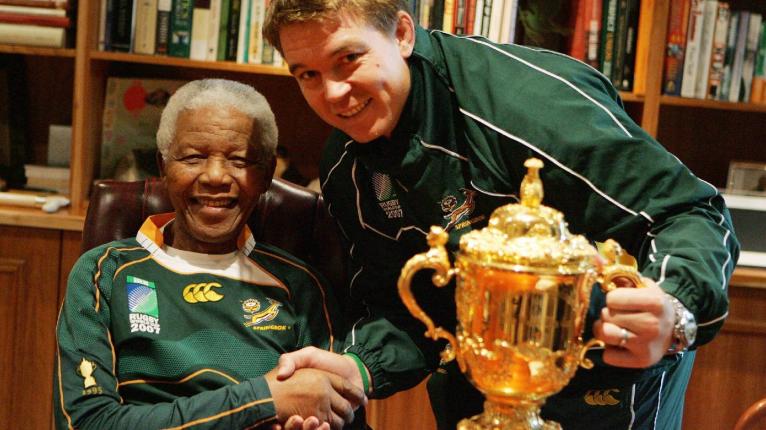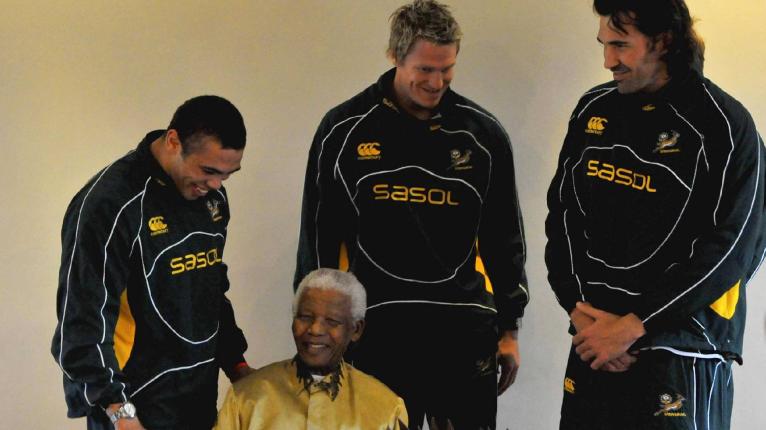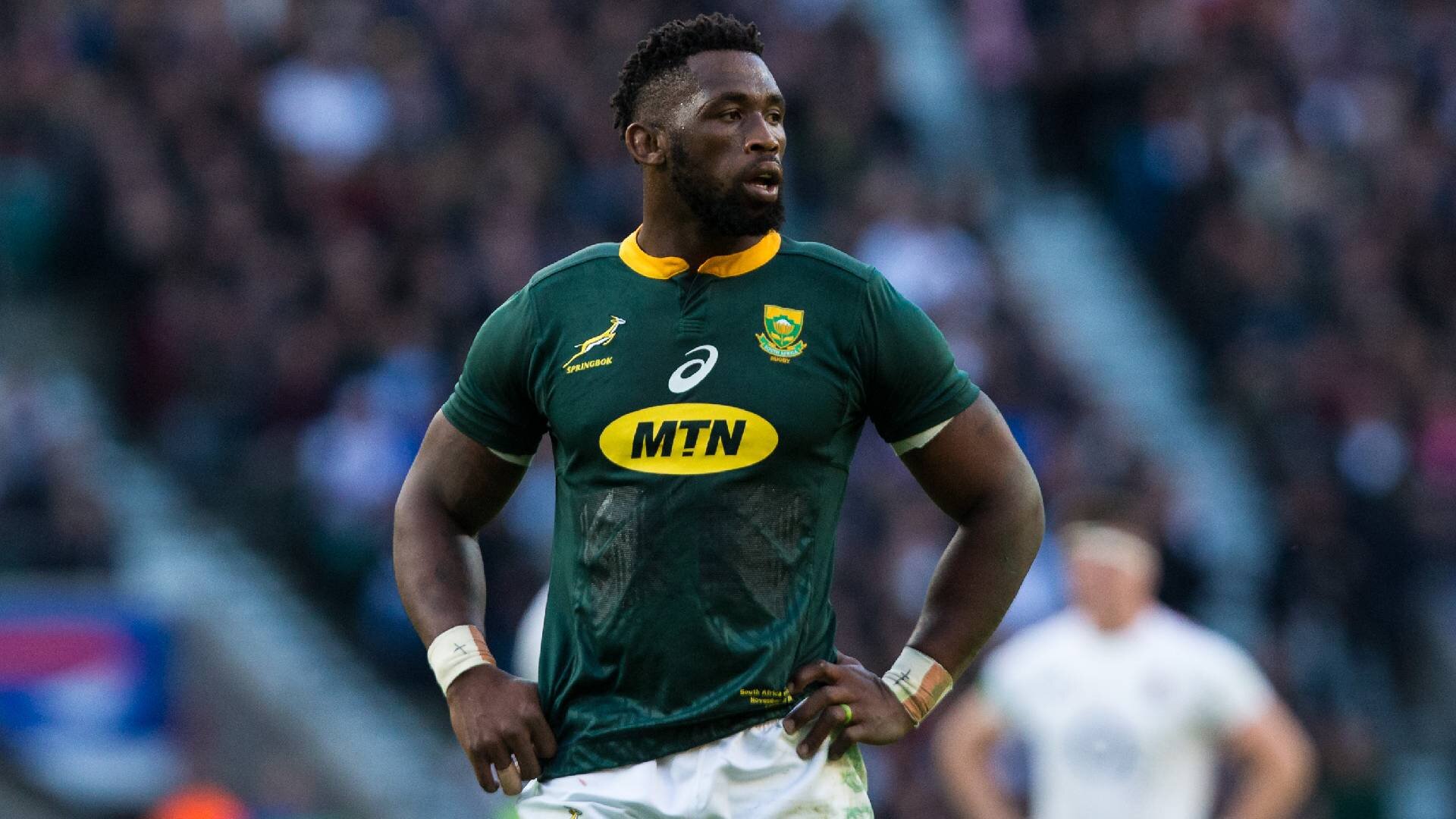'It would be historic' - Siya Kolisi could out-do Nelson Mandela according to Springboks legend

Should Springboks captain Siya Kolisi lift aloft the World Cup in Yokohama later this year, it would be a more impactful moment than the iconic image of Nelson Mandela handing the Webb Ellis Trophy to Francois Pienaar in 1995.
That’s the verdict from Springboks legend Bryan Habana in a lengthy interview with The Guardian.
Kolisi is the first-ever black captain of the Springboks, and is set to lead a resurgent South African side to this year’s World Cup in Japan in what’s likely to be the most competitive World Cup in recent memory.
Habana, the now-retired 35-year-old wing who won the World Cup with South Africa in 2007, said he was inspired to get involved in rugby after watching President Mandela hand the Webb Ellis Trophy to Springboks skipper Pienaar following the Springboks’ maiden World Cup success 24 years ago.

Mandela had used to Springboks to unite a racially-divided South Africa throughout the tournament of which they were hosting for the first time since the abolishment of their ban from international rugby by World Rugby – then known as the International Rugby Board (IRB) – in 1992.
After defeating the All Blacks 15-12 after extra-time in the final at Ellis Park in Johannesburg, Mandela emerged onto the pitch donning a Springboks jersey – a team which was adored by white Afrikaners and loathed by the country’s black majority throughout Apartheid – in a symbolic gesture which represented a post-Apartheid, rainbow nation South Africa.
Despite admitting that he regards the All Blacks as favourites to claim an unprecedented hat-trick of world crowns, Habana – a joint record-holder for most World Cup tries (15) – didn’t mince his words when it came to explaining the impact Kolisi would have in lifting the World Cup in four months’ time.

“I think it would have a much greater impact than ’95,” he said.
“I think seeing Siya run out as captain in June last year pulled on the emotional strings like ’95, and rightly so.
“For me personally, knowing Siya, knowing his personal history where he literally got raised by his grandmother, had nothing, then got an opportunity … for me this is about a player who first and foremost got chosen on his rugby playing ability.
“He got made captain on his leadership capabilities and thrived on that responsibility. He wasn’t a token player, being given a position because of our country’s history.
“If South Africa go on and win a World Cup this year outside of South Africa, with Siya Kolisi as the captain, it will be absolutely monumental, especially in a World Cup that is going to be so tough to win.
“For us as a country to have that inspiration, for 70 per cent of our population to have that example, would be immensely important, on a par with Mandela in ’95 if not greater. It would be historic.”

Of mixed race himself, Habana praised head coach Rassie Erasmus for producing one of the most harmonious and best-performing Springboks squads in years as the complex and ongoing power struggle between races within South Africa continues.
Last year, the Springboks beat then-Six Nations champions England 2-1 over a three-match test series, upset the All Blacks 36-34 in Wellington, and came up just shy of completing the double over their arch-rivals following an 80th-minute conversion by Richie Mo’unga to an Ardie Savea try which secured a 32-30 win in Pretoria.
Although he retired more than a year ago due to an ongoing knee injury, Habana will be involved at this year’s World Cup as an analyst and broadcaster.
In other news:










































































